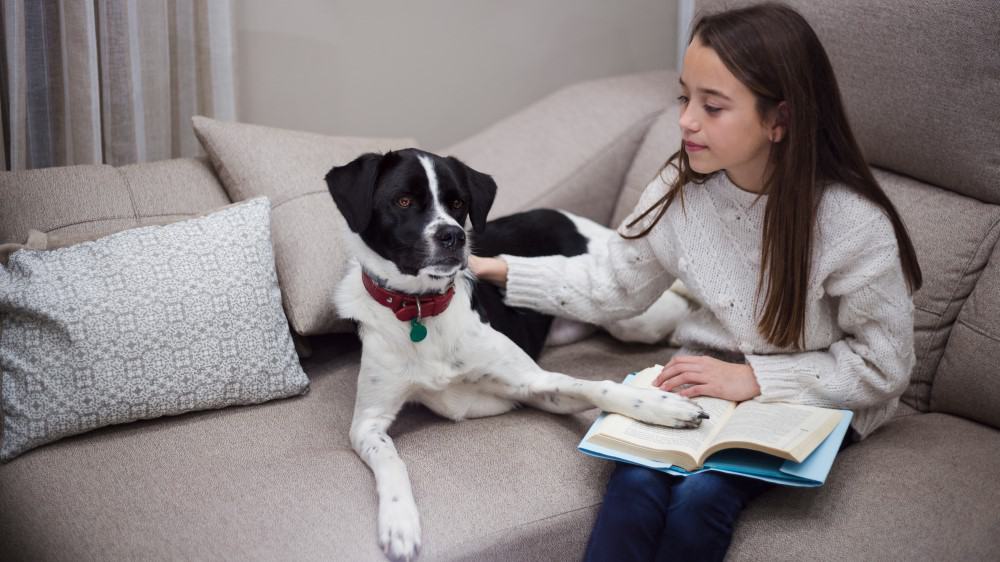Students love keeping dogs to deal with loneliness, enhance social skills, reduce stress and anxiety, and find opportunities to exercise, among other reasons. As long as a student knows how to take care of a dog, they can create time to attend lessons and study effectively.
Keeping a dog by students is a good idea but it often comes with stereotypes, some of which are confirmed in real-life while others are not. Here are some common stereotypes you need to know.

Dogs value loyalty
Dogs are regarded as good companions due to their loyalty. They are social as human beings are, and they exhibit this behavior for survival. Many animal experts and dig trainers the pack behavior of dogs is what makes them loyal to people.
Besides loving a great cuddle, dogs believe that the pack behavior is what makes dogs loyal to people. As such, it is difficult for you as a student dog owner to delegate your responsibility of taking care of the pet to another person.
If you have lots of classwork to do and assignments to complete, find external help and continue taking care of your pet. The Canadian homework help by PhD experts on AssignmentBro is all you need to cope with your homework struggles. The trained experts do quality research work to guarantee good grades in the assignments and they complete the assignments on time. They have experience in writing assignments and are keen to follow guidelines issued by your professor.

They are open and friendly to people
Research reveals that dogs are pack animals that depend on socialization to survive. They exhibit the agreeableness, conscientiousness, and extroversion qualities that are common to human beings.
As universities and colleges attempt to deal with mental health issues, the benefits of the animal-human bond cannot be overlooked. Dogs bring canines and college students together in beneficial ways.
Dogs are therapeutic because their interactions with people increase oxytocin, a hormone that makes one feel good. Going to college with your dog during exams can help you to distress, relax and boost your mood. A dog can be carefully selected and trained to go and visit its handlers/ owners during this period. However, it is important to develop a plan on when to take care of your pet and when to revise for your exams.
They understand social cues
Social cues such as your voice, tone, volume, and movements prompt dogs’ reactions.
Watching the reactions of your canines to the cues can enable you to understand those cues better. It can also let you gather insights into the non-verbal communication commonly used by other people.
It is easier to enjoy reading in the company of a dog just as you would do in the presence of other people. Through the non-verbal cues, the dog can distinguish between your study time and the time when you need to take care of it.
The ability of dogs to interpret social cues begins at an early age. Therefore, you can get yourself a puppy and take care of it to maturity without fear of academic interruptions. Communication preferences among people may have triggered the evolution and domestication of dogs. Dog experts and researchers can understand the social cognition of dogs and their relationship with humans.
They value treats
It is easy to train dogs using the right treats. If you need to complete pending assignments, use reward systems to communicate to your dog about a treat awaiting it after the assignment. You can set study targets without compromising taking care of the pet.
The success of the training session will depend on the appropriateness of the treats used. Understanding how to identify treats can enable you quickly train new behavior and enable the pet to be more responsive. It will also help to reduce the monotony of using the same treats over time and manage their calorie intake.
Figuring out what your dog likes require knowing what the pet finds more valuable and not necessarily how much you pay for the treat. Using “high-value” treats may be a great option for training new behavior and rewarding the dog for high-quality or quick cue responses.
Conclusion
People have different believes and attitudes towards the students keeping a dog, with some citing it as unethical and others embracing it. The above stereotypes are proven and can enable you to understand how to balance taking care of the pet and focusing on your studies. With the right attitude and skills, you can enjoy companionship with your dog, enjoy your school life and excel in your studies.
Author’s Bio:
Alina Boskar works for a media company as a scriptwriter for the video content and copywriting for the clients. She’s brilliant in what she does and also loves helping students who need extra help with their homework or research paper writing work. Her free time is for German classes, swimming and playing lawn tennis.

